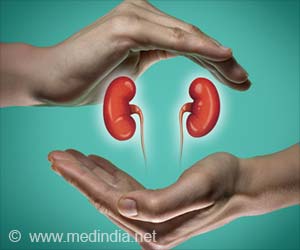The method used to detect malaria can help in cost-cutting and can save time in doing the laborious tests.
Highlights
- With the use of a device connected to a smartphone and a newly developed app, malaria can be detected easily.
- The device has a microcamera which sends details of the picture of the blood to the lab. Within seconds, the lab would send the results to the phone.
“The camera will take the picture of the drop of blood. The picture will have to be uploaded on the app. The remote testing facility will need only 10 seconds to send an accurate result informing the person whether he has malaria or not,” claimed IEMS professor Nilanjana Dutta Roy.
Dutta Roy and her fellow researchers, Nilanjan Daw and Debapriya Paul, are now waiting for the approval of the ministry. “We are expecting the approval soon since the initial reaction from the ministry was extremely positive,” she said.
Each device will be able to conduct multiple tests that will help an infected person to regularly monitor the response of the medication.
“In conventional pathological tests, it takes almost seven to eight hours to get the blood report and it costs about Rs 200. The device will bring down the cost to about Rs 10 per test and the result will be available in seconds,” she claimed.
The Indian Institute of Engineering Science and Technology (IIEST), Shibpur, near Kolkata, has provided the technical support for the development of the app-cum-device.
Malaria
Malaria is a serious parasitic disease and is carried to humans by mosquitoes infected with the protozoan parasite called Plasmodium.
An important fact about malaria is, only the female mosquitoes belonging to Anopheles genus act as vectors in carrying the disease. These mosquitoes blood feed on infected humans and contribute to the transmission of malaria. However, malaria is a non-contagious disease and does not spread directly from person-to-person.
Classification of Malaria
World Health Organization (WHO) classifies malaria into:
Uncomplicated Malaria
Uncomplicated malaria results in symptoms, but clinical tests do not indicate any vital organ dysfunction. This type of malaria goes through 3 stages:
- Cold stage (shivering)
- Hot stage ( fever, vomiting, headaches)
- Sweating stage (sweating, tiredness)
Severe malaria is caused mainly by P. Falciparum, and if left untreated, can result in organ failure. Severe malaria also causes anemia, cerebral malaria resulting in abnormal behavior, acute respiratory distress syndrome, low blood pressure, acute kidney failure, hyperparasitemia and hemoglobinuria.
Though malaria is a treatable disease, the major concern is that malarial parasites are increasingly becoming drug resistant and thereby throw challenges in curbing the spread of the virulent disease.
The two groups mainly vulnerable to contracting malaria are - children who are below the age of five and pregnant women. During pregnancy, immunity to malaria reduces, making a woman more vulnerable to the disease.
Source-Medindia











